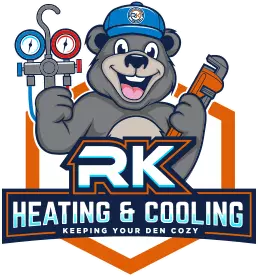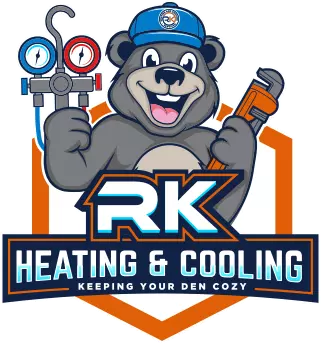Keeping your home’s heating system running efficiently is crucial for comfort and safety during the colder months. Recognizing and addressing heating issues promptly can make a significant difference in maintaining a cozy living environment. Understanding common heating problems, knowing basic troubleshooting steps, and acknowledging the benefits of professional repair services can help you manage your heating system effectively.
Common Heating Issues in Residential Properties
Several common issues can affect the performance of heating systems in residential properties. Recognizing these problems early can help you take corrective action and minimize disruptions.
1. Uneven Heating: One of the most common issues is uneven heating throughout the home. Certain rooms may be warmer or cooler than others, indicating potential problems with the ductwork, insulation, or the heating system itself.
2. Frequent Cycling: If your furnace turns on and off frequently, it could be a sign of a malfunctioning thermostat, dirty filters, or other underlying issues. Frequent cycling can reduce efficiency and put a strain on the system.
3. Inadequate Heat: Sometimes, the heating system may run but still fail to provide adequate heat. This could result from a variety of problems, including a failing blower motor, clogged filters, or low refrigerant levels.
4. Unusual Noises: Unusual noises such as banging, rattling, or squealing often indicate mechanical problems. These noises could be due to loose components, a failing motor, or other internal issues that require professional attention.
5. High Energy Bills: An unexpected increase in energy bills, without a corresponding rise in usage, may suggest that your heating system is working harder than it should. This could be due to inefficiencies or pending mechanical failures.
By addressing these common heating issues promptly, you can ensure your home’s heating system operates efficiently and reliably.
Simple Troubleshooting Steps Homeowners Can Take
While some heating issues require professional attention, there are a few simple troubleshooting steps homeowners can take to address minor problems and potentially avoid a service call.
1. Check the Thermostat: Ensure that the thermostat is set to the correct temperature and mode (heat). Replace the batteries if necessary, and double-check the settings to make sure everything is programmed correctly.
2. Replace or Clean Filters: Dirty filters can restrict airflow and reduce the efficiency of your heating system. Replace disposable filters or clean reusable ones regularly to maintain proper airflow.
3. Inspect Vents and Registers: Make sure all vents and registers are open and unobstructed. Blocked vents can lead to uneven heating and put a strain on the system. Clear any furniture, drapes, or other objects that may be blocking airflow.
4. Reset the Circuit Breaker: If your heating system won’t turn on, check the circuit breaker. Sometimes, a tripped breaker can be the issue. Resetting it may restore function.
5. Inspect the Furnace: Look for any obvious issues, such as loose panels or disconnected components. Ensure that the furnace door is securely closed, as some systems have safety switches that prevent operation if the door is open.
By performing these basic troubleshooting steps, you may resolve minor issues without needing to call a technician. However, if problems persist, it’s best to rely on our professionals for a thorough inspection and repair.
Benefits of Professional Heating Repair Services
Seeking professional heating repair services offers numerous benefits that ensure your heating system operates efficiently and reliably. Our professionals possess the expertise and specialized tools required to handle complex heating issues, providing peace of mind and optimal performance.
1. Accurate Diagnosis: Our technicians can accurately diagnose the root cause of heating problems, preventing potential misdiagnoses that can lead to further issues. This thorough approach saves time and prevents unnecessary repairs or replacements.
2. Proper Repairs: Once the problem is identified, our professionals carry out repairs correctly the first time. Their experience ensures that all components are properly fixed or replaced, improving the system’s overall functionality and life expectancy.
3. Improved Efficiency: Professional repairs can significantly enhance the efficiency of your heating system. By addressing issues promptly and precisely, the system operates more smoothly, reducing energy consumption and minimizing costs.
4. Safety Assurance: Heating systems can pose safety risks if not properly maintained. Our professionals ensure that all safety protocols are followed, reducing the risk of hazards such as gas leaks, carbon monoxide poisoning, or fire.
5. Warranty Protection: Many heating systems come with warranties that can be voided by improper repairs. Professional service maintains your warranty and ensures compliance with the manufacturer’s guidelines.
Relying on our technicians for heating repair ensures a comprehensive and effective solution, providing long-term benefits for your home’s comfort and safety.
Long-Term Maintenance Tips for Efficient Heating
To maintain efficient heating in your home, regular maintenance is essential. Implementing these long-term maintenance tips can help you keep your heating system in top condition and avoid unexpected breakdowns.
1. Schedule Regular Inspections: Have our professionals inspect your heating system at least once a year. Regular inspections can identify potential issues before they become major problems, ensuring that your system runs efficiently.
2. Change Filters Routinely: Clean or replace air filters every one to three months, depending on usage and the type of filter. Dirty filters restrict airflow and force the heating system to work harder, reducing its efficiency.
3. Keep Vents Clear: Ensure all vents and registers are unobstructed by furniture, rugs, or curtains. Blocked vents can cause uneven heating and unnecessary strain on the system.
4. Check Insulation: Proper insulation can greatly enhance your heating system’s efficiency. Make sure your home is well-insulated, particularly in areas like the attic, walls, and floors.
5. Monitor Thermostat Settings: Use programmable thermostats to optimize heating schedules and settings. Lowering the temperature at night or when you’re away can save energy and reduce wear on the system.
6. Inspect Ductwork: Leaking or poorly sealed ductwork can result in heat loss and increased energy consumption. Have our technicians inspect and seal ducts to improve performance.
By following these long-term maintenance tips, you can keep your heating system running smoothly and efficiently, providing consistent comfort throughout the year.
Conclusion
Keeping your home warm and comfortable during the colder months requires a well-maintained and efficient heating system. By understanding common heating issues, performing simple troubleshooting steps, and investing in professional repair services, you can ensure your heating system operates reliably.
Regular maintenance is key to preventing issues and prolonging the lifespan of your heating system. Scheduling periodic inspections, changing filters, and monitoring thermostat settings can make a significant difference in maintaining efficiency. Remember, addressing minor problems early can prevent costly repairs and enhance the overall performance of your heating system.
If your home requires professional heating repair in O’Fallon, MO, trust the experts at RK Heating & Cooling. Our skilled technicians are dedicated to providing top-notch service to keep your home warm and safe. Contact us today for all your heating repair needs.




